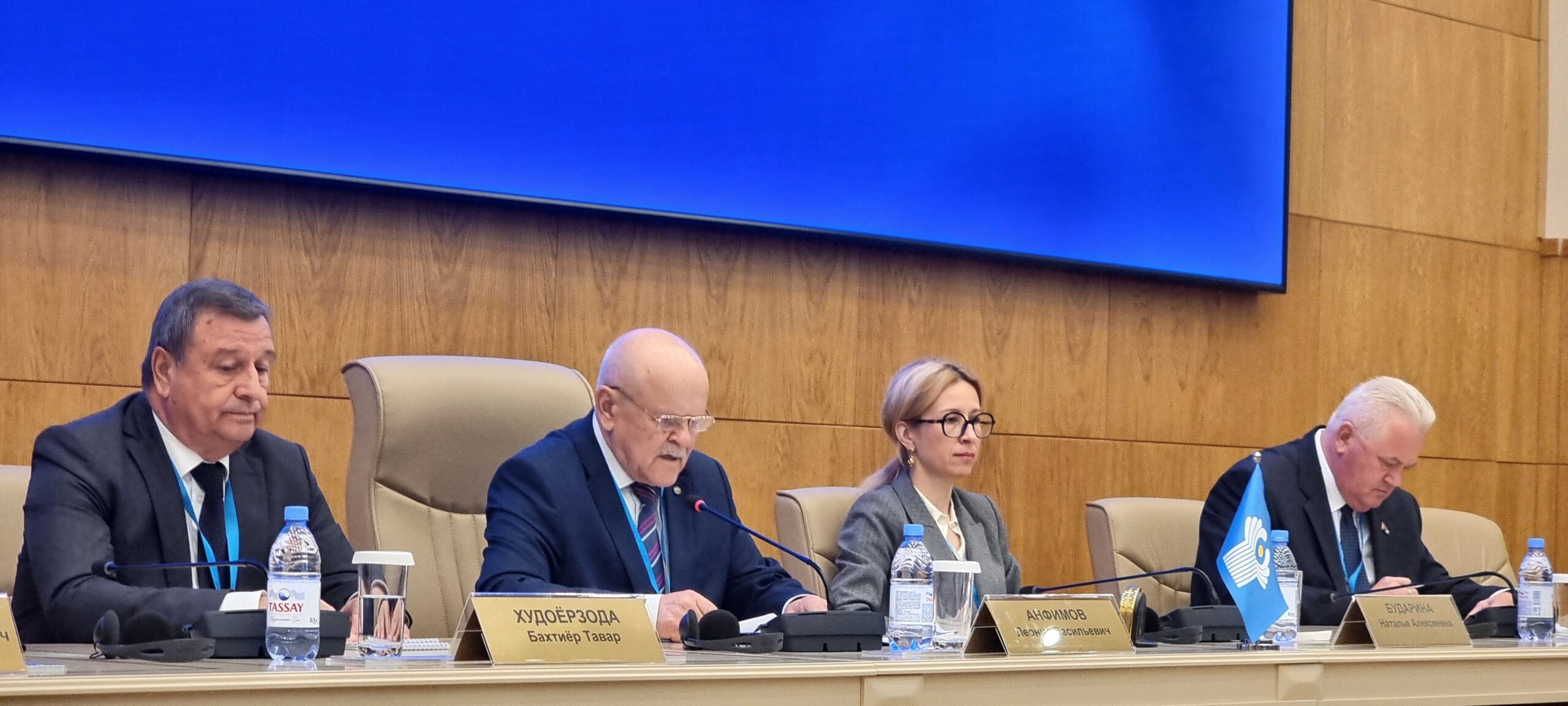ASTANA – The delegates from the Commonwealth of Independent States (CIS) observer mission shared their views on the voting procedure and citizen participation in Kazakhstan’s national referendum on nuclear plant construction on Oct. 7.

Delegates from the CIS observer mission provided their insights on the voting process and citizen participation during a briefing at the Central Election Commission on Oct. 7. From left to right: Bakhtiyor Khudoyorzoda, Leonid Anfimov, Natalya Budarina, Igor Karpenko. Photo credit: The Astana Times
“The decision made through this referendum will be pivotal in shaping the country’s future and will act as a powerful driver to unlock Kazakhstan’s vast, untapped economic potential,” said Leonid Anfimov, the head of the CIS Observer Mission at the Central Election Commission (CEC) briefing.
Anfimov emphasized the country’s thorough preparation for the referendum and the strong cooperation with international observers.
“The observer mission worked closely with the CEC, which provided all necessary information and ensured access to referendum commissions at all levels. We met with various participants, including state officials, and found that Kazakhstan created favorable conditions for international observation,” he said.
He spoke about the state bodies who provided clear explanations of the legal framework for the referendum. Detailed materials were prepared by the commission, outlining the procedures for both the preparation and execution of the vote.
A key aspect of the process, according to Anfimov, was the careful preparation of voter lists.
“The commission, along with other relevant state bodies, systematically ensured that all eligible citizens could participate. Citizens who were not on the lists had the opportunity to register at any of the 196 polling stations to take part in the vote,” he said.
In response to inquiries from the mission, Kazakhstan’s CEC, the Supreme Court, and the Ministry of Internal Affairs reported no major incidents.
“Before the referendum, 24 individuals were held administratively liable, but no criminal cases were initiated. The only violation reported by the Ministry of Internal Affairs involved leaflets lacking proper identifying information,” said Anfimov.
CIS observers were present in nine regions of Kazakhstan, including the Akmola, East Kazakhstan, West Kazakhstan, Karagandy, Mangystau, Turkistan Regions, as well as in the cities of Astana, Almaty, and Shymkent. They visited 618 polling stations and noted a high level of organization and transparency in the voting process.
“I personally visited over 10 polling stations and witnessed excellent organization,” said Anfimov.
He added that the mission regularly communicated with national observers, who did not report any complaints or legal violations and agreed that the referendum complied with the country’s current laws.
“The referendum was held at a high level of organization, in a free and transparent atmosphere, fully in line with Kazakhstan’s Constitutional Law on national referendums. The government and referendum commission ensured that citizens’ right to freely express their will was fully respected,” said Anfimov.
Igor Karpenko, the chairman of the Central Election Commission of Belarus, echoed Anfimov’s assessment, praising the collaboration between government branches.
“Optimal and comfortable conditions were created at polling stations, ensuring a smooth voting process. I was impressed by the quality of equipment and the availability of informational materials, which were easily accessible to all citizens, including people with disabilities,” said Karpenko.
He noted that Kazakh citizens were open and friendly, often approaching international observers to share their opinions about the referendum.
“Many expressed positive views about the referendum and the issue at hand,” he said.
Karpenko also highlighted the presence of a large number of national observers, with whom the mission interacted.
“None of the national observers raised any concerns that could have affected the voting process, and no violations of national law were reported,” added Karpenko.
